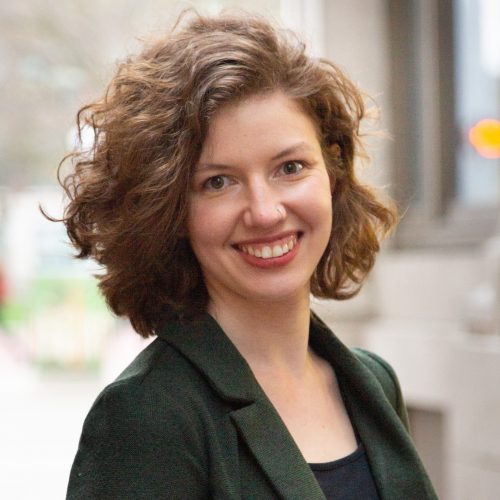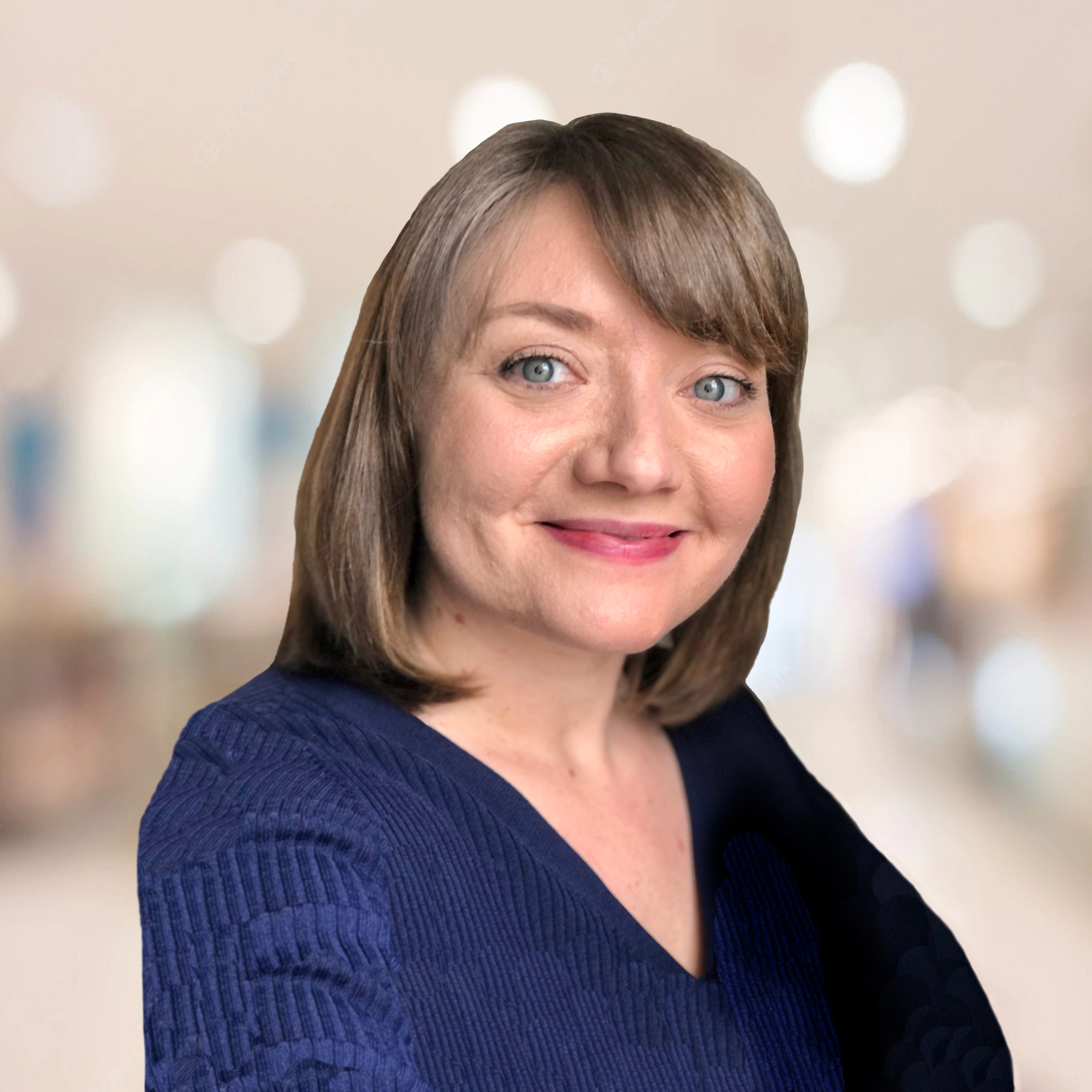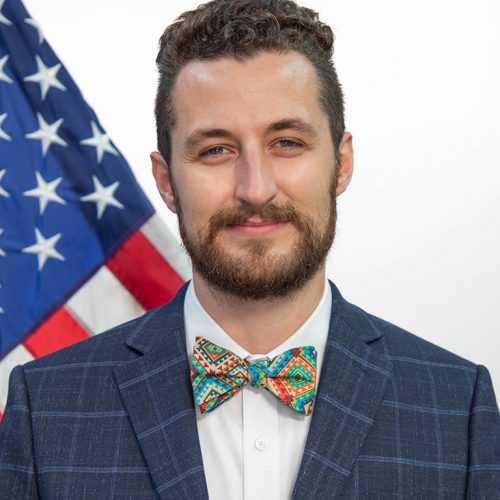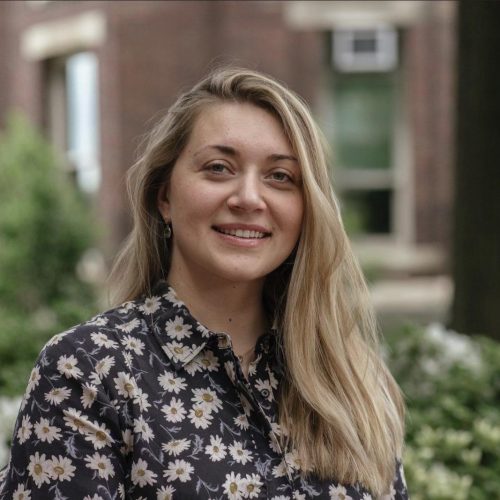
PIT-UN Alumni Journeys
The U.S. Digital Corps (USDC) was launched by the Biden administration in August 2021 as a new, high-profile effort to hire early-career technologists into roles across the federal government. As one of the first programs offering PIT careers to new and recent graduates, USDC provides paid, full-time, two-year fellowships in five tracks—software engineering, data science and analytics, product management, design, and cybersecurity—to work on high-impact projects that build a more effective and equitable government for the American public.
This summer the Digital Corps welcomed its inaugural cohort of 38 Fellows, including alumni from several PIT-UN member institutions, four of whom are featured below. Applications for the 2023 cohort of Digital Corps Fellows will open this October. Interested candidates and others are encouraged to subscribe to USDC’s newsletter and follow the program on Twitter and LinkedIn for updates.
Karley Thurston (University of Michigan)
Karley is a 2022 graduate of the University of Michigan’s Gerald R. Ford School of Public Policy, where she received a master’s degree in public policy. Prior to that, she conducted workforce development research and strengthened links among employers, social services, and educators for four years and volunteered with community food and education initiatives.
Karley is working as a product manager at the Centers for Medicare and Medicaid Services (CMS) Office of Enterprise Data and Analytics, where she is empowering users and teams across CMS to make better use of data to achieve their mission faster and more securely. She is also contributing to products that ensure that beneficiaries and other CMS stakeholders have access to the data they need to make informed decisions.

I have been working in either the public or nonprofit sectors for most of my career, but up until this point, it has been primarily through research roles. I went back to school to find a way to apply my analytical and data skills for a more direct impact. Technology modernization and lack thereof regularly came up as both a barrier and opportunity: to social services and the safety net, to equity, to policy, and so on. I already knew I was looking for a job that would let me deepen my technology skills while continuing to work for the public good, so I was really excited to see the U.S. Digital Corps opportunity come up.
This community of Fellows has been an inspiring group to join. In part, just because everyone has such interesting and diverse backgrounds—it has been fun, and I’m glad I get to work with and get to know them. There has been a lot of great idea sharing already. On a more serious level, those diverse backgrounds mean that a lot of us are new to tech, or to the government, or both. Even if you know you have the skills and the determination to grow into the role, that can be intimidating. Being able to work through challenges with others in our skill track or placement agency, or even just share experiences with so many other newcomers, has been invaluable.

Lacy Kelly Ramos (University of California, Berkeley)
Lacy Kelly Ramos is a 2022 graduate of UC Berkeley Extension, where she earned a certificate in user experience (UX) design. Lacy, who has a BFA in graphic design, has worked in both the public and private sectors in the medical, policy, nonprofit, and education fields.
She is working as a user-centered designer at the U.S. Census Bureau, where she is enabling data users to easily access the census data they need so they can spend less time searching for data and more time using it.
As a designer working with digital products, I’ve often felt a step or two removed from the outcome of my work and its impact for the end user. After spending time in nonprofits and state-level organizations, I felt empowered and reenergized by what my skills could offer the public and began seeking opportunities where the impact of the projects would be far-reaching and have a more tangible output. Sitting in on the initial webinars for USDC, it was exciting to learn about the eagerness of agencies to have Fellows come aboard to own, manage, and improve upon their technologies. For me, the fellowship felt like not only a pathway into a new landscape of interesting challenges but also a rare opportunity to learn and grow significantly.
For the first 12 years of my career, I was a graphic designer largely focused on branding and digital communications. I spent two years as an interaction designer at a medical device company, which sparked my interest in UX. My tenure at an education policy nonprofit very much informed my interest in civic work and data. Most recently I’ve partnered with several state-level education organizations and nonprofits. Prior to joining the Digital Corps, I completed a UX program at UC Berkeley, where I conducted qualitative research on the mental health and well-being of K-12 teachers, performed usability testing for USPS digital products, and designed an application for people who are homeless to more easily access local resources.
Trey Gordner (Virginia Tech)
Trey Gordner is a 2022 graduate of Virginia Tech, where he earned a master’s degree in urban planning with a concentration in data analytics. Earlier, he founded a company that helps public libraries appear in local online search results and was an Agile product manager, leading the development of several software products in the government, education, nonprofit, and advertising industries.
Trey is working as a Product Fellow at the U.S. Department of Health and Human Services (HHS), where he is contributing to a departmen-twide data strategy and fostering employee-led innovation.

Being a part of this community is a uniquely rewarding experience. It reminds me in the best of ways of the sense of camaraderie and shared potential on startup teams. Each of us have our own placements, abilities, experiences, and goals, but we have the same drive to serve the American people better through technology. The other Fellows advise me, encourage me, motivate me, and inspire me on a daily basis.
Every week, I participate in official learning and development for all the Fellows, an informal one-on-one with a different Fellow every week, and small group discussions with other Fellows at my agency and in the product management skill track every other week. I also meet with my GSA [General Services Administration] supervisor every other week to ensure that I am succeeding and growing in my role at HHS. In between, we Fellows keep up vibrant discussions on everything from resources we’re finding helpful to jokes and photos of pets.
All of us also received the warmest of welcomes from the greater Technology Transformation Services (TTS) community at GSA and have been invited to participate in guilds, communities of practice, working groups, and book clubs. So not only do we have the benefit of one another’s company and support, we’re also connected to the broader tech community across the federal government.
I’m part of an amazing team from across the department developing the HHS Data Strategy. Our goal is to define and prioritize long-term department wide goals in data sharing and interoperability, talent and culture, data governance, data-driven decision-making, and more, and determine the next steps to accomplish them. Our current work includes reading and synthesizing public sector mandates and guidance with private sector best practices and interviewing internal leaders, external stakeholders, and subject matter experts.
My primary role for this 12-week engagement is project management, helping the team to collaborate effectively and meet our objectives on time. Along the way, I’m also imagining new products and policies that could meet the data needs of our staff, our government partners, health care professionals, researchers, and other important audiences. In a later phase, I will have the opportunity to contribute these ideas for consideration in the Chief Data Officer’s road map and implementation plan for the next two years.

Anastasia Gradova (Columbia University)
Anastasia Gradova is a 2022 graduate of Columbia University, where she studied computer science with a focus on intelligent systems. She holds bachelor’s and master’s degrees from Ural University in Russia, where she was a professional basketball player before developing a passion for how artificial intelligence is shaping our world.
She is working as a software engineer at the General Services Administration with the 10x team, where she is contributing to projects that improve government efficiency.
As a person new to the technology world and looking to start a career in computer science, I thought I would follow a more traditional path in Big Tech, but I was presented with this unique opportunity. The ability to contribute to the improvement of the government experience was too great to pass up. As an immigrant to this country, facing many challenges in navigating so many different systems between city, state, and federal programs, I realized the impact that government has on our daily lives. While most tech people might consider the opportunity to work on the next Big Tech app a great way to start a career, I decided that I wanted to apply my skills to making a change on a national scale instead of selling more ads. I am looking forward to seeing the applications I work on today change the lives of Americans tomorrow.
When I immigrated to the United States, I started my career in the hospitality industry as a server, as far away from tech as I could be. I spent eight years working as a server, a bartender, and a manager, which taught me valuable skills in dealing with less than ideal situations. While I already had a degree in business administration and a master’s degree in social work, I decided that technology was a way to make a significant change. While at Columbia University, I had the opportunity to participate in some amazing programs like Design@Columbia, which allowed me to experience what it felt like to rapidly build an application over a summer. During my senior year, I worked on a startup through Columbia Build Lab’s partnership with Columbia Business School. In addition to experiences like these, I was able to take classes in artificial intelligence, natural language processing, machine learning, graph theory, programming, design, and many other fields. All of these combined gave me a well-rounded understanding of practice and theory that prepared me for the role I have today.
